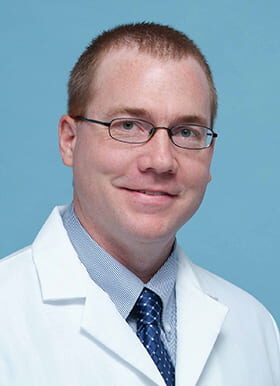
Brian Fuller, MD, MSCI
Associate Professor, Anesthesiology - Critical Care Medicine and Emergency Medicine
- Email: fullerb@nospam.wustl.edu
Research Interests
Dr. Fuller’s research philosophy revolves around the clinical paradigm that the delivery of critical care should not be restricted to just the intensive care unit (ICU), but should begin in the prehospital environment, and include the emergency department (ED), operating room, AND ICU. His focus also is in studying pragmatic and scalable interventions that have been traditionally reserved for the ICU to a more proximal time window in presentation, such as the ED. His research has shown that lung-protective ventilation is uncommon in mechanically ventilated ED patients, progression to ARDS occurs shortly after admission from the ED, and is associated with how the ventilator is dosed in the ED. He also conducted a PET imaging pilot trial, showing essentially that critically ill ED patients have “pre-injured” lungs, with extensive neutrophilic inflammation. This puts them at risk for ARDS by treatment provided (or not provided) in the ED and early ICU course (i.e. accrual of “second hits”). His work has also shown that the early implementation of lung-protective ventilation in the ED is associated with a reduction in pulmonary complications, ventilator duration, and mortality (The LOV-ED Trial).
Going forward, Dr. Fuller aims to assess the impact of goal-oriented sedation targets for mechanically ventilated patients immediately after endotracheal intubation in the ED on short- and long-term patient-oriented outcomes.
Brian Fuller holds a Bachelor of Science in Biology from the University of Alabama at Birmingham, where he graduated in 1998. He graduated from the University of Alabama School of Medicine in 2003 and then entered the four-year residency program in Emergency Medicine at the University of Cincinnati, serving as chief resident during his final year. Upon completion of residency in 2007, he opted for further training in Critical Care Medicine, and completed the two-year multidisciplinary critical care fellowship at Cooper University Hospital in Camden, New Jersey in 2009. In 2009, he came to Washington University in St. Louis, where he was the first clinician with dual training, board certification, and appointments in both Emergency Medicine and Critical Care Medicine. He earned his Master’s of Science in Clinical Investigation (MSCI) in 2013 through the Washington University Clinical Research Training Center.